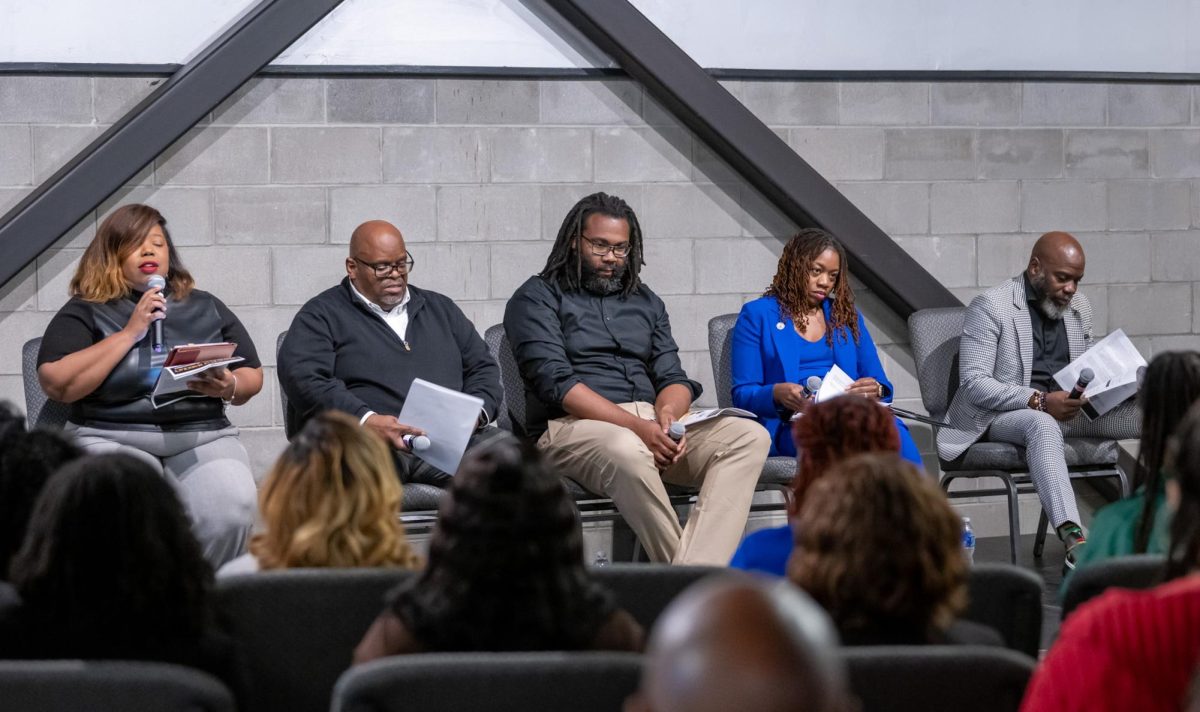Mental health is a crucial aspect of college life, yet it is often overlooked or stigmatized. Common issues such as anxiety, depression and stress are prevalent among college students due to the pressures of academic life and personal and social demands.
Some students may also face the stressful tasks of separating and becoming independent from their family of origin, while others must juggle multiple responsibilities like work and family. Many students, especially those who are persons of color, fail to seek the needed help for mental health issues or lack the general support, resources and treatment required to address the underlying concerns.
With increased awareness of mental health issues, there is still a stigma around treatments that can prevent students from seeking help. This includes public stigma. According to Psychiatry.org, public stigma refers to the negative attitudes and beliefs that society holds about mental health conditions. It encompasses stereotypes, discrimination and a general lack of understanding about mental health issues.
Self-stigma occurs when individuals internalize public stigma, leading to feelings of shame or guilt about their condition. This self-stigmatization can result in a reluctance to seek help or share their struggles.
Institutional stigma involves systemic discrimination and barriers within organizations or institutions, such as healthcare systems or workplaces, which can affect access to mental health services and support. Other conditions around institutional stigma can include funding for mental health illnesses, where research is needed, or public health services are provided. Many organizations fail to cover mental health treatment adequately.
National Alliance on Mental Health said mental health problems may be stigmatized in certain Black communities due to cultural beliefs or misunderstandings, which can discourage individuals from seeking help or talking openly about their mental health. The Black community’s fear resonates with the fear of mental health issues as a sign of weakness or a personal failure rather than a health or medical condition. The lack of acceptance may also be due to prejudice and discrimination. Additionally, the lack of cultural competency can lead to misdiagnosis and inadequate treatment within the U.S. healthcare system, particularly affecting Black communities.
Black individuals might be more likely to recognize and describe physical symptoms associated with mental health issues, such as describing bodily aches and pains when discussing depression. A healthcare provider lacking in cultural competence might not identify these as symptoms of a mental health condition. Moreover, Black people are more likely to be misdiagnosed with schizophrenia when expressing symptoms related to mood disorders. In cases like this, it is helpful when the person you are seeking help from looks like you. Often, Black people’s pain is not taken as seriously as that of other races. Having someone who looks like you advocate for the fact that everyone experiences pain and trauma, but it is just shown differently, can make a difference.
Addressing stigma is an ongoing process that requires effort from individuals, communities and institutions. By fostering an environment of understanding and support, we can work toward reducing the stigma associated with mental health and improving the overall well-being of those affected.
For many students, academic pressure is a significant source of stress and can profoundly impact mental health. The high expectations to achieve academic success can lead to chronic stress and anxiety. Students may worry about grades, exams and future career prospects. The fear of not meeting academic expectations or failing can be overwhelming, contributing to heightened levels of anxiety. This could lead to sleep disturbances, burnout, social withdrawal, impact on physical health and a decrease in academic performance.
Self-care and utilizing campus resources are essential for relieving stress. Encouraging self-care activities such as regular exercise, healthy eating, sufficient sleep and relaxation techniques can positively impact mental well-being. Effective time management and setting realistic goals are also crucial. One critical approach for students needing support and resources can be aided with the training and education of staff at historically Black colleges and universities (HBCUs) along with engagement with leadership and the university support staff. Similar to many HBCUs like Tuskegee University, which has a Wellness Center with 24-hour counseling support, and Howard University, which supports a crisis and suicide prevention phone line, our university offers a Counseling Center located in the John Garrick Hardy Center, Suite C150.
These resources are key to combating the negative stigma around mental health issues and were established to support the growing student population.
Nirmita Panchal, Latoya Hill, Samantha Artiga, and Liz Hamel pointed out that racial and ethnic minorities have less access to mental health services compared to whites. They are also less likely to acquire the care they need, and the care they do receive is often of poor quality.
These differences have influential consequences for minority groups and society as a whole. Minorities need to take the advantages that certain institutes hold so that they can get the care they deserve and need. If you or someone you know attending university needs support, reach out to the Counseling Center or call 334-229-4382 for services. The university also has a 24/7 crisis line at 562-294-3575, or you could email [email protected].
Categories:
Students should always be aware of their mental health
Jessica Roberson, Assistant Viewpoints Editor
September 7, 2024
Jessica Roberson is the assistant Viewpoints editor and staff columnist for The Hornet Tribune. She is a sophomore forensic biology major from Montgomery, Alabama, who plans to become a forensic examiner.
Story continues below advertisement
0
More to Discover












